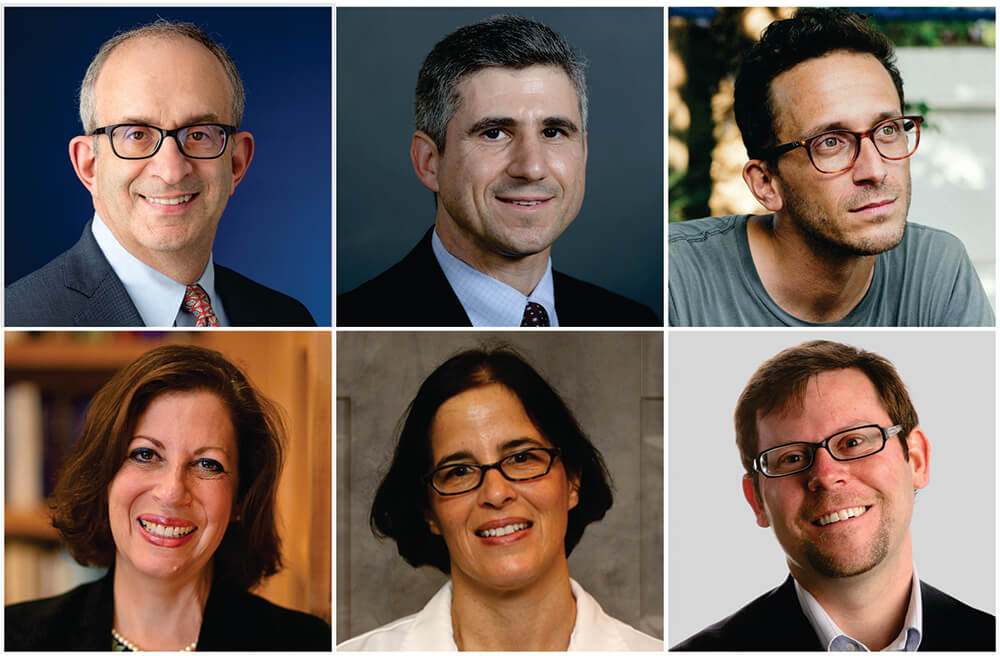Touro University Hosts Discussion of Antisemitism on Campus
University Professors from Around the U.S. Call for Enforcement of Rules, Mandatory Holocaust Education and Advocacy

Touro University convened prominent professors at American universities across the U.S. to discuss antisemitism on campus. The “Touro Talks” program, presented virtually and co-sponsored by Touro’s Jewish Law Institute, was attended by hundreds of participants from around the country and moderated by Touro President Dr. Alan Kadish and Professor Sam Levine of Touro’s Jewish Law Institute.
Professors from Columbia University, University of Pennsylvania, University of California Berkeley and University of North Carolina participated, each of whom had written and spoken about antisemitism on their campuses.
The wide-ranging discussion covered what each had experienced over the past few months since October 7th, including the charged atmosphere, what has been done to combat the problem and what they thought could be done going forward.
“Up until a few months ago, many naively thought the 2,000-year-old problem of antisemitism was gone and now we know that’s not true and we all must band together to fight it,” said Dr. Kadish.
Tensions on Campus
The academics described tension on campus and serious concerns, detailing everything from demonstrations, panel discussions and graffiti to perceived failures on the part of university administrators and trustees to condemn antisemitism and enforce rules to protect students.
“We’re not seeing differences in ideology, differences in politics.” said Shai Davidai, assistant professor of management at Columbia Business School. “We’re seeing hatred.”
Dr. Kadish agreed it’s been disappointing that some college leaders have not stood up and tried to fight antisemitism in a more aggressive way, and that attempts to get them to do so have been largely unsuccessful.
How to Solve the Problem
Claire Finkelstein, a professor of law and professor of philosophy and faculty director of the Center for Ethics and the Rule of Law at the University of Pennsylvania, described a lack of perspective among students who are no longer taught the Holocaust or European history.
“We’re at a point where very few Holocaust survivors are left to speak up,” she said, describing the rise in Holocaust denialism as extraordinary. “The flaws in secondary education explain why colleges are fertile ground for a surge in antisemitism,” continued Finkelstein.
She called for colleges to teach civility on campus, provide mandatory instruction on the Holocaust, halt and punish threatening and harassing speech and to stop taking funds from non-democratic nations, especially in the Middle East.
U.C. Berkeley’s Professor of Law Steven Solomon agreed, saying undergraduate students he teaches are ignorant about the Nuremberg trials. “They believe Israel just existed in 1948. They really don’t know the history generally, not just the Holocaust.”
Professor Davidai urged that people need to speak up and get others to speak up. “Write letters to local newspapers. Realize this is not a Jewish problem. This is an American problem. That’s the only way we will make any change. If you wait and wait, it will end up being too late when you actually want to act,” he said.
Touro Talks, an online lecture series engaging thought leaders and experts from around the world on academic and contemporary issues, is directed by Nahum Twersky.
/prod01/channel_38/media/redesign/assets/images/background-images/locations-background.jpg)
